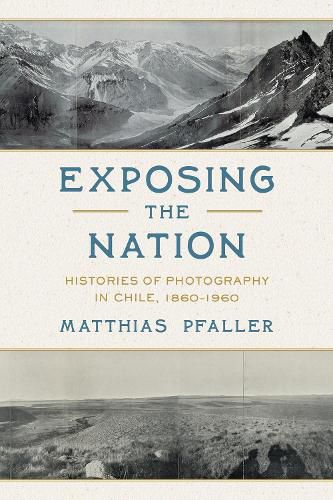Readings Newsletter
Become a Readings Member to make your shopping experience even easier.
Sign in or sign up for free!
You’re not far away from qualifying for FREE standard shipping within Australia
You’ve qualified for FREE standard shipping within Australia
The cart is loading…






Pfaller argues that photography is a Eurocentric practice that others its subjects. Exposing a Nation questions a national historiography of photography and images produced in Chile over the course of a century. There are multiple photographies, and they have a variety of uses: science, politics, tourism, family traditions, ethnology, art. They appear in a diverse array of media: government albums, family albums, mass-produced postcards, exhibition prints, scientific records, and published books. Pfaller demonstrates the versatility of photography on the one hand, and the ways in which the national paradigm and modern historiography influenced the production and reception of photographic images on the other. It becomes clear that "national photography" is not a genre of its own, manifest solely in specific discourses. Rather, the nation, photography, and history are meta-discourses that pervade the very idea of Chile as represented through photography and the photographic image.
$9.00 standard shipping within Australia
FREE standard shipping within Australia for orders over $100.00
Express & International shipping calculated at checkout
Stock availability can be subject to change without notice. We recommend calling the shop or contacting our online team to check availability of low stock items. Please see our Shopping Online page for more details.
Pfaller argues that photography is a Eurocentric practice that others its subjects. Exposing a Nation questions a national historiography of photography and images produced in Chile over the course of a century. There are multiple photographies, and they have a variety of uses: science, politics, tourism, family traditions, ethnology, art. They appear in a diverse array of media: government albums, family albums, mass-produced postcards, exhibition prints, scientific records, and published books. Pfaller demonstrates the versatility of photography on the one hand, and the ways in which the national paradigm and modern historiography influenced the production and reception of photographic images on the other. It becomes clear that "national photography" is not a genre of its own, manifest solely in specific discourses. Rather, the nation, photography, and history are meta-discourses that pervade the very idea of Chile as represented through photography and the photographic image.